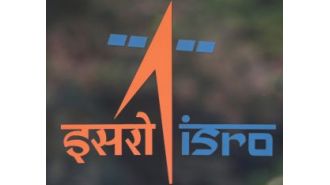Doris Burke contributed research.
Senator Elizabeth Warren Probes Google’s Quest for Soldiers’ Medical Data
Recent cyberattacks in the U.S. might have been detected sooner if infected computers had logging software, a feature in premium Microsoft licenses. Former National Cyber Director Chris Inglis says this type of security should already be built in.

Reflecting rising concerns that Big Tech’s infatuation with artificial intelligence threatens privacy and economic competition, Sen. Elizabeth Warren has begun investigating Google’s efforts to swoop up medical information derived from biopsy specimens of millions of military service members.
Warren, a Massachusetts Democrat and the chair of the Senate Armed Services Subcommittee on Personnel, wrote on Tuesday to Google and the Department of Defense, seeking information and records related to the company’s pursuit of a vast trove of medical data overseen by the military’s Joint Pathology Center. The archive represents a largely untapped gold mine for AI and health care companies, because computers can use the data to develop algorithms that detect patterns, like telltale signs of tumors, faster and often better than humans can.
In her letters, Warren accused Google of “aggressive attempts” to gain service members’ medical information and Defense Department officials of “favoritism” toward the tech giant. “I am alarmed by reports that Google tried to privately broker a deal to secure exclusive access to JPC data,” Warren wrote to Sundar Pichai, CEO of both Google and its parent company, Alphabet.
Warren was referring to a ProPublica report published last December, which revealed that at least a dozen Defense Department staff members pushed back against Google’s campaign for the medical data. ProPublica found that Google began in late 2015 to gather medical information at military installations and hospitals around the country, which it planned to use to build AI tools. Such software, the company hoped, would give it an edge in the race to develop algorithms that could help pathologists diagnose illnesses more quickly and accurately, predict prognoses and, eventually, Google scientists hoped, find new treatments for diseases, including cancers.
Google’s allies in the Defense Department and on the staff of the House Armed Services Committee tried to help the company, ProPublica reported. In exchange for exclusive access to the archive, the company offered to digitize the collection of pathology slides that are stored at a sprawling warehouse in Silver Spring, Maryland. But staff at the JPC and elsewhere expressed dismay about risks to the privacy of service members’ tissue specimens and about the use of a sensitive government resource by a corporation to develop unproven AI tools. In 2021, Google was not selected for a pilot project to begin digitizing the collection.
“The public deserves a full accounting of DoD’s secretive interactions with Google regarding private health data contained at the JPC and complete transparency surrounding DoD’s blatant favoritism towards Google,” Warren wrote to Defense Secretary Lloyd Austin III. She has asked both Google and the Defense Department to respond by Aug. 8.
A Warren spokesperson characterized the letters as a “prelude to inform a potential Senate investigation and potential future legislation.” The senator said in a statement on Tuesday that the JPC “has millions of tissue samples from servicemembers and veterans that are meant to support the public good — but Google came dangerously close to landing an exclusive monopoly on these samples and the right to charge DoD for access to this data.”
A Google spokesperson declined to comment but referred ProPublica to statements and a blog post that the company published in response to the December story. “We had hoped to enable the JPC to digitize its data and, with its permission, develop computer models that would enable researchers and clinicians to improve diagnosis for cancers and other illnesses,” the company said then. “Despite efforts from Google and many at the Department of Defense, our work with JPC unfortunately never got off the ground, and the physical repository of pathology slides continues to deteriorate.”
A Defense Department spokesperson declined to comment, saying the agency doesn’t discuss communications with members of Congress. The JPC has said that its highest priority is to ensure that any medical information shared with outside parties is “used ethically and in a manner that protects patient privacy and military security.”
Since the Civil War, the U.S. military has been collecting and studying human tissue of armed service members in an effort to reduce the toll of injuries, diseases and fatalities suffered in wartime and peace. The collection has spurred numerous advances in medicine and science, including the first genetic sequencing of the 1918 flu virus. Today, the repository holds more than 31 million matchbook-sized blocks of human tissue and 55 million pathology slides.
Pathology is ripe for the AI revolution. A single pathology slide, which can be scanned and digitized, holds vast amounts of visual information. In 2021, Google told the military that the JPC collection of veterans’ skin samples, tumor biopsies and slices of organs holds the “raw materials” for the most significant biotechnology breakthroughs of this decade — “on par with the Human Genome Project in its potential for strategic, clinical, and economic impact.”
But lawmakers, regulators and ethicists have struggled to keep pace with developments in AI. Some models can process information now at a scale that’s beyond human comprehension.
The corporate use of the JPC collection is particularly delicate. Most of the specimens come from military service members who did not consent to the use of their tissue for research. In addition, there are national security ramifications. China has already collected huge health care data sets from the U.S., both legally and illegally, as it seeks to develop its own AI capabilities, according to the National Counterintelligence and Security Center.
Warren has emerged as one of Google and Big Tech’s most vocal critics on Capitol Hill. In 2019, she assailed the company’s efforts to amass millions of patient records in a partnership with the Catholic health care system Ascension, dubbed “Project Nightingale.”
ProPublica is a nonprofit newsroom that investigates abuses of power. Sign up to receive our biggest stories as soon as they’re published.
ProPublica is a nonprofit newsroom that investigates abuses of power. Sign up to receive our biggest stories as soon as they’re published.
Doris Burke contributed research.
Doris Burke contributed research.






